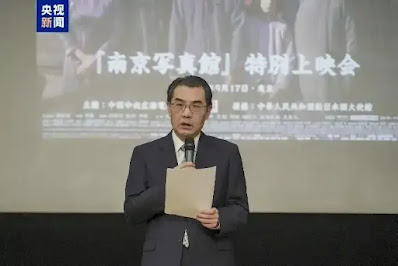9月27日、日本教育会館にて日朝全国ネット主催シンポジウム「日朝ピョンヤン宣言から23年 国交正常化を求めて」が開催されました。会場は立ち見が出るほどの盛況でした。和田春樹さん、李柄輝さんとともに登壇させていただいたのは大変光栄でした。お呼びいただいた藤本さんはじめ日朝全国ネットのみなさまに感謝します。そこでの乗松聡子の発言内容をここに紹介します。朝鮮がロシアに連帯したウクライナ戦争についてちゃんと理解することは大事だったので踏み込んで語りました。会場から反発は出ず、逆に、賛同の声、「自分の言いたいことを全部言ってくれた」との声、出版社の人からも、「ロシアを悪者扱いするような本は出さないようにしている」といった声が聞かれ希望を感じました。質疑応答で話題になった、ジェフリー・サックスやジョン・ミアシャイマーの言論も日本にある程度浸透しているとも感じました。時代は動き、メディアリテラシーのある人にはもう、西側のプロパガンダは通用しなくなってきていると感じます。朝鮮が「グローバル・マジョリティ」の一員であるという認識をみなさんと共有しました。
国交正常化の課題を問う/シンポジウム「日朝ピョンヤン宣言から23年」
高校、幼保無償化適用を要請/日朝全国ネット、国会議員が文科省へ
日朝国交正常化のためには、日本人が変わらなければいけない
2025年9月27日 乗松聡子
こんにちは、乗松聡子です。カナダに通算30年住んでいる日本人です。一昨日到着しました。きょうは、お招きをありがとうございました。
まず結論を最初に言います。
いま、米国が率いる西側帝国主義が破壊的戦争を続けています。ガザのジェノサイドはその典型です。
日本は、西側帝国に組み込まれたままの「名誉白人」国家です。G7に非白人国家として一国だけ参加しているのが象徴的です。
いま、グローバルサウスによる、脱植民地の動きが高まっています。西側帝国に搾取されてきた国々が、もうやられっぱなしにならないと、手を結んでいます。BRICSや上海協力機構の発展が目覚ましいです。
対ロシア制裁やトランプ関税も、非西側の結束を高める結果となっています。世界の貿易の脱ドル化が進んでいます。
そのグローバルサウスはいまやグローバル・マジョリティとも呼ばれます。朝鮮はグローバル・マジョリティの一員です。逆に取り残されているのは米国の属国である日本です。
日本には、米国の呪縛を解き、アジアに戻ってもらいたいと思っています。
東アジアの平和を阻む要素ではなく、平和をつくる一員となってほしいです。そのためには朝鮮、中国、ロシアを理解、尊重することは不可欠です。
日朝国交正常化のためには、変わらなければいけないのは日本です。以下の項目について順にコメントします。
n 呼称問題
まずは、「北朝鮮」という呼称についてです。国の名前でさえないこの呼称がいまだに蔓延しています。
これは朝鮮を国として認めていなかった植民地支配時代の名残だという批判があります。私もそう思います。
韓国のことは国名で呼ぶのに朝鮮についてはそれを拒否する。これは差別としかいえません。
わたしは2019年訪朝したときに、まず国名を説明されました。朝鮮民主主義人民共和国、略すときは「朝鮮」であると。「鮮やかな朝の国」と説明されました。
その旅の中で、早朝にテドンガンのほとりを歩いたとき、朝日が射した川面の鮮やかさに目を奪われ、その意味がわかりました。これが当事者の望む呼び方です。
日本の戦争時代、北米にいた日系人は敵性外国人とされ強制収容所に送られ、JAPと呼ばれました。今もカナダに暮らしていて、日系人コミュニティの中にこの傷が深く残っていることを実感します。JAPと呼ばれてもいいと思っている日本人や日系人はいないでしょう。それと同じです。
日本メディアは、2002年日朝会談まではおおむね「朝鮮民主主義人民共和国(北朝鮮)」と、併記する方法を取ってきました。これも問題だったのですが、会談で金正日国防委員長が「拉致」を認め、日本国内で憎悪感情が沸き起こりました。その年の年末、朝日新聞が、もう併用はせずに「北朝鮮」を使うと宣言し、NHKも2003年から変わりました。
朝鮮は、「北朝鮮と呼ぶな」という要求を繰り返し日本に対して行っています。2003年1月29日づけの「労働新聞」で、朝日新聞による「北朝鮮」呼称決定を批判しています。2005年にも、「北朝鮮」と呼ぶことは「わが国の存在と権威を無視する行為だ」と言っています。
日本は国交を正常化するためにも、相手国をその国の名前で呼ぶという最低限のリスペクトを示してこそ、スタート地点に立てるのではないでしょうか。
n 拉致問題
拉致問題は重大な人権侵害でした。ただ、私がいまだに理解できないのは、ふつう事実認定と謝罪をすればそれが和解への第一歩になると思うのですが、この場合、それがきっかけで逆に朝鮮に対するヘイトが増したことです。
広島と長崎の原爆投下や都市空襲においては民間人が何十万人も殺されていますが、米国は謝罪もしていません。それなのに日本人の大半はアメリカが大好きです。この違いは何なのでしょう。
訪朝したとき、通訳ガイドをしてくれた金さんが言っていました。あの頃は日本との国交正常化の期待から、日本語熱が高まったが、いまや日本語への需要も減ってしまったと。あの日朝会談はやらなかったほうが良かったかもしれないと。それを聞いてとても悲しく思いました。
この問題は、被害者中心主義で取り組まれたとは言い難く、日本の保守政治家や右翼運動家が、政治利用のために解決を先延ばしにしてきました。
しかし、拉致問題を利用して朝鮮を敵視する政策が、なぜ政治的プラスになってしまうのでしょうか。日本の一般市民はそんなに朝鮮をヘイトしたいのでしょうか。ここに根本的な問題があると思います。
何より、日朝平壌宣言では、植民地支配で「朝鮮の人々に多大な損害と苦痛を与えた」歴史への「痛切な反省と心からのお詫びの気持ち」にもとづいた、植民地支配の清算と同時に取り組む問題だったはずです。
植民地支配時約2500万人いた朝鮮人のうち3分の1,約800万人が強制動員や日本軍性奴隷として動員され、多くの人が命を奪われました。
これについて朝鮮側には償いや清算が全く行われていないどころか、在日朝鮮人の人権侵害、朝鮮学校差別、ヘイトスピーチの蔓延という形で、解放後80年の現在も植民地主義が続いています。
気の遠くなるような規模の植民地被害を全く語らずに、拉致、拉致とだけ叫ぶ日本メディアと日本人は、ダブルスタンダードを露呈しているとしか言い様がありません。
日本に帰るたびに思いますが、日本の人たちは拉致被害者や家族の名前をよく知っており、自分の家族か親戚かのように語ります。メディアの影響でしょうが、これが正直不気味で怖いです。この人たちは、日本の植民地支配による被害者の名前を一人でも言えるでしょうか。
拉致問題は、日朝平壌宣言がいうように、日朝の間に横たわる多くの人権問題の一つであるという認識に立ち返る必要があると思います。そのためには被害者意識に偏った日本人の歴史認識を問い直さなければいけません。
n 朝鮮学校、幼稚園無償化排除問題
2019年9月、金丸信吾さんの訪朝団が宋日昊(ソン・イルホ)日朝国交正常化交渉担当大使と会ったとき、朝鮮学校無償化除外の撤回がないかぎり「日朝関係は 1 ミリたりとも動かない」と言っています。朝鮮学校差別は国交正常化への大きな障害となっています。
カナダでは日系人強制収容という歴史がありましたが、1988年にリドレスと呼ばれる、政府による謝罪と補償がありました。それは個々の被害者に補償しただけではなく、民族としての存在の権利を保障されたのです。そのおかげもあって、私はカナダで子どもを日本語学校に行かせ、日本文化に触れさせながら育てましたし、それで差別されたことはありません。
私たちは好きでカナダに移住しましたが、朝鮮学校は、植民地支配があったゆえに奪われた文化や言語を取り戻すために作られたのです。本来は、償いの意味も含め、他の民族にもまして手厚くするのが当たり前です。
しかし日本は正反対で、朝鮮学校を標的にして無償化から排除し、補助金を切り、存続の危機に追いやっています。これは民族抹殺、エスニッククレンジングの行為であると思います。
この問題は他の問題に比べ、日本政府の決断だけですぐ変えられる、比較的容易な問題です。明日にでも差別をやめるべきです。それで日朝国交正常化に一歩近づけます。
n 朝鮮半島の非核化
朝鮮にだけ非核化を求めるということは、すでに圧倒的に非対称な米国の核の脅威をまったく問題視せず、朝鮮にだけ身ぐるみはげということです。
相手の身になって考えてみればわかります。イラクやリビアのように敵視され指導者が残酷な方法で殺され、国を壊されたケースをみれば、朝鮮が核兵器をもって米国から身を守ろうとするのは当然のことです。
だから、非核化を語るのなら朝鮮半島における米国の核の脅威をなくすことが必要なのです。
先日、李柄輝先生の講座にオンラインで出たとき、「“朝鮮半島の非核化”とは朝鮮にとっては具体的にどういう意味なのか」ということを聞きました。
答えは、「米国は、弾道ミサイルから爆撃機・空母まで、多様な手段を通じて、迅速に朝鮮に核攻撃を加える態勢を維持している。そのような核攻撃能力を排除することが朝鮮半島の非核化である」とのことでした。
韓国と日本の米軍の存在自体が朝鮮にとっての核の脅威なのです。
西側の言い分は、核のダブルスタンダードとしか言えません。西側の核はいいが、西側の敵の核は悪い。だから、ロシア、中国、朝鮮、イランの核は「悪い核」で、米国や同盟国の核は「良い核」だということです。イスラエルも核兵器を持っているのに査察も制裁もありません。
米国だけは何をやっても許される、という例外主義を日本も内在化しています。歴代の広島と長崎の式典での市長による平和宣言ではどこの国が原爆を落としたかを一度も言ったことがありません。日本被団協のノーベル平和賞の受賞スピーチでもそうでした。逆にロシアの核を名指しで批判していました。
敵視というのは戦争の前段階です。平和運動でさえ、政府と一緒になって特定の国を敵視するのです。戦争につながる敵対構造をあえて強化しながら核兵器廃絶などできないと思います。
n グローバル・マジョリティの時代
9月3日に北京で開催された、「中国人民抗日戦争・世界反ファシズム戦争勝利80年記念大会」(この後は9.3と呼びます)では、習近平主席が、朝鮮の金正恩委員長とロシアのウラジミール・プーチン大統領とともにこの重要な節目を祝いました。画期的なことでした。
しかし日本のメディア報道は、「良好な関係を誇示する」とか、「世界に結束を見せつける」という語調ばかりで、そこには加害国としての反省も、敗戦国としての謙虚さも見えません。
この催しは第一義的に、80年前の、大日本帝国を倒した記念日のお祝いです。日本人は米国と戦い、米国に負けたとしか思っていない人が多いので、この式典の意味がわからないのかもしれません。
米国の原爆投下が日本の降伏を決定的にしたかのように言われることが多いですが、実際はソ連の満州侵攻が大きな役割を果たしました。2月の日朝全国ネット創立パーティーにも来た、ピーター・カズニック教授など先進的な歴史家は、ソビエト侵攻のほうが大きな役割だったと言っています。
朝鮮は、40年の植民地支配の中で独立のために闘いました。1945年9月2日、戦艦ミズーリにおける降伏調印式で日本を代表した重光葵外相が足をひきずる姿に、私は「朝鮮は戦勝国である」という証を見ました。
1932年、大韓民国臨時政府の命を受けた独立運動家ユンボンギルが義挙した「上海天長節爆弾事件」で片足を失っていました。
今回、西側諸国がほとんど参加しなかった中、韓国からウ・ウォンシク国会議長が参加したのも、抗日戦争の勝者の一員であるということを印象付けました。
来賓の26か国のうち、アジア太平洋戦争で日本の被害を受けた国々は他にも、インドネシア、マレーシア、べトナム、ミャンマー、カンボジア、ラオスなどが参加していました。
これらの国々は日本帝国主義を倒した日を共に祝う資格があります。米国、英国など他の連合国も参加すればよかったのです。
BRICSプラスパートナー諸国の20か国は、いまや購買力平価(PPP)ベースで世界のGDPのおよそ半分を占めており、人口では世界全体の過半数を超える規模となっています。
文字通り「グローバル・マジョリティ」になってきているのです。
習近平主席が9.3の演説で触れましたが、BRICS側はウィンウィンの関係を求めているのに米国はゼロサムの関係、つまり自らの覇権を維持することにしか関心がありません。
だから米国は対決姿勢を強め、制裁、関税などで他国を疎外しています。それが結果的にグローバル・マジョリティの国々の結束を強めています。
さきほど敵視政策の話をしましたが、米国は敵視どころではありません。この8〜9月だけでも、ウルチ・フリーダム・シールド(米韓)、フリーダム・エッジ(日米韓)、レゾリュート・ドラゴン(日米)という、大規模演習を行いました。
米軍基地で中国や朝鮮を取り囲み、中国が言い出したわけでもない「台湾有事」という概念を作りだし、戦争を煽っています。
米国が、中国や朝鮮の目と鼻の先でやっていることを、中国や朝鮮が米国沿岸でやったらどうなのでしょう?許されるはずがありません。
それなのに西側メディアは、9.3の式典における閲兵式を、「米国主導の国際秩序に対する強硬姿勢」と言って批判しました。
これだけ威嚇しておいて、中国は、国内で閲兵式をやることさえ許されないのでしょうか。
逆に、日本や欧米が「国際社会」と呼んでいる西側諸国は、世界の人口の15%にも満たないマイノリティなのです。グローバル・マジョリティが力をつけ、西側諸国にもう搾取はさせないという非西側国の、脱植民地主義の動きが加速しています。
朝鮮はその流れの中にいます。9.3の式典に金正恩委員長が行ったことは、その世界の流れに朝鮮も確実に加わったという宣言にも見えました。
n 米国が仕掛けた戦争
ロシアの特別軍事作戦について西側では、Unprovoked という枕詞とともに、ロシアが突然ウクライナを侵略した戦争だというナラティブが席捲しました。実際は違います。端的に言うと、この戦争は30年以上前にさかのぼります。ロシアが始めた戦争ではありません。米国が始めた戦争です。
米国のジャーナリスト、スコット・ホートン氏が昨年「Provoked」という分厚い本を出しました。7000のソースを使った、700ページの本で、どれだけ米国がロシアを威嚇してきたかーパパブッシュからバイデンにいたるまで、徹底的に記述しています。
冷戦が終結し、存在意義がなくなったはずのNATOは約束に反して東方拡大を続けました。2014年、米国は、ウクライナのナチス勢力を利用して、ウクライナ政権を転覆させます。民主的デモを装って、その国を自分の思い通りになる政権に取り換える米国の常套手段です。
それ以来、ウクライナの傀儡政権は東部ドンバス地方のロシア系住民を徹底的に迫害しました。グラートというロケット弾で市民に対し無差別攻撃を行いました。ドンバスの内戦では、国連によると1万4千人が命を落としました。
和平のためのミンスク合意も、西側が踏みにじりました。21年12月ロシアから米国への安全保障のための条約案もすべて米国が拒絶しました。22年2月、ウクライナによるドンバス攻撃が激化する中、とうとうロシアはドネツクとルガンスクの独立を承認し、特別軍事作戦に踏み切ったのです。
目的はウクライナ征服でも欧州侵略でもありません。自国と、ロシア系住民を守るためのウクライナ中立化、非ナチ化です。やりたくてやっているのではありません。
ウクライナ戦争の根本の原因を理解することは、朝鮮のロシア派兵を理解するためにも不可欠と思います。
米国およびNATOが束になってロシアを攻撃している中、ロシアも同盟国を持つことが許されていいはずです。
ロシアと朝鮮は24年、包括的戦略パートナーシップ条約を結び、その同盟関係のもとで朝鮮は派兵しました。派兵先は、ウクライナに攻撃されたロシア国内のクルスクの防衛に限定していました。
朝鮮兵は100人以上が戦死したと聞いています。ご遺族のお気持ちを思うと、計り知れない悲しみであったと想像します。
ただ、朝鮮がロシアと連帯したことについては、正しかったと思います。
ロシアの特別軍事作戦は、世界で内政介入と戦争を繰り返す西側帝国に対する、脱植民地主義の闘いの一つです。それに朝鮮が連帯したということは、朝鮮がthe right side of history、歴史の正しい側についたということです。
n 平和主義と脱植民地主義
このような話をすると、絶対的平和主義の立場から、戦争はいけない、非暴力でやらないといけない、核兵器はいけない、といったことを言う人たちが必ず出てきます。
わたしはこのような見方を、平和主義をかざしながら、脱植民地の闘いを抑えつける、一種の帝国主義であると思います。
それは平和主義でさえありません。誰かを踏みつけた上での「平和」など、平和とは言えないからです。(クォン・ヒョクテ『平和なき「平和主義」』)。
米軍基地を押し付けられている沖縄の人が、「日本が受け入れると決めた米軍基地は、沖縄ではなく日本本土に置け」という当然の要求を、「基地はどこにも要らない」と言って抑えつけるのもこのパターンです。
植民地支配しておいて、ユンボンギル義士のような蜂起行動を「テロリスト」と呼ぶのもそのパターンです。80年近くにおよぶイスラエルによるパレスチナ民族浄化という背景で起こった23年10月7日のハマスの蜂起についても、テロリスト扱いがいまだに西側に蔓延しています。
圧倒的非対称の構造で長年抑圧しておいて、被抑圧のほうが少しでも抵抗すると、暴力的だ!テロだ!といって100倍返しをするのです。
非難すべきはどちらでしょうか。
あらゆる平和的、外交的、政治的手段を奪われた民族が武装蜂起することを、奪っている側が責めることはできません。法政大学のシン・チャンウ教授の著書『植民地戦争』にあるように、「抵抗する側の視点」からの正当性を持つ戦争です。
日本の人たちは、「9条」や「平和」や「核廃絶」という、聞こえのよい言葉に乗せた「帝国主義的平和主義」を振り返る必要があります。
沖縄や韓国の軍事化を前提にしながら語る「9条の平和」。米国の核の傘を前提に語る「核兵器廃絶」。日本を被害者として宣伝する「唯一の被爆国」という概念で、その暴力性は増幅します。
いまこそ、日本人はやられた側に立っての捉えなおし、語り直しが必要と思います。植民地支配されたことのない民族だからこそ、想像力をはたらかせる必要があります。
n 日朝全国ネットの役割
日本はアジアに位置しながら、なお「脱亜入欧」の道を歩み続けています。果たして、このまま米国に従属し、戦争と破壊の道をともにするのでしょうか。それとも、再びアジアの一員となり、地域の平和と自己決定権に貢献するのでしょうか。
朝鮮との国交正常化は、日本が「グローバル・マジョリティ」に受け入れられる可能性があるかどうかを示す、試金石になるのではないかと考えます。
それを可能にするため、日朝全国ネットは、朝鮮への理解と友好を推進する活動をどんどん行っていけばいいと思います。自分たちがマジョリティであると、自信を持っていいと思います。
(おわり)














